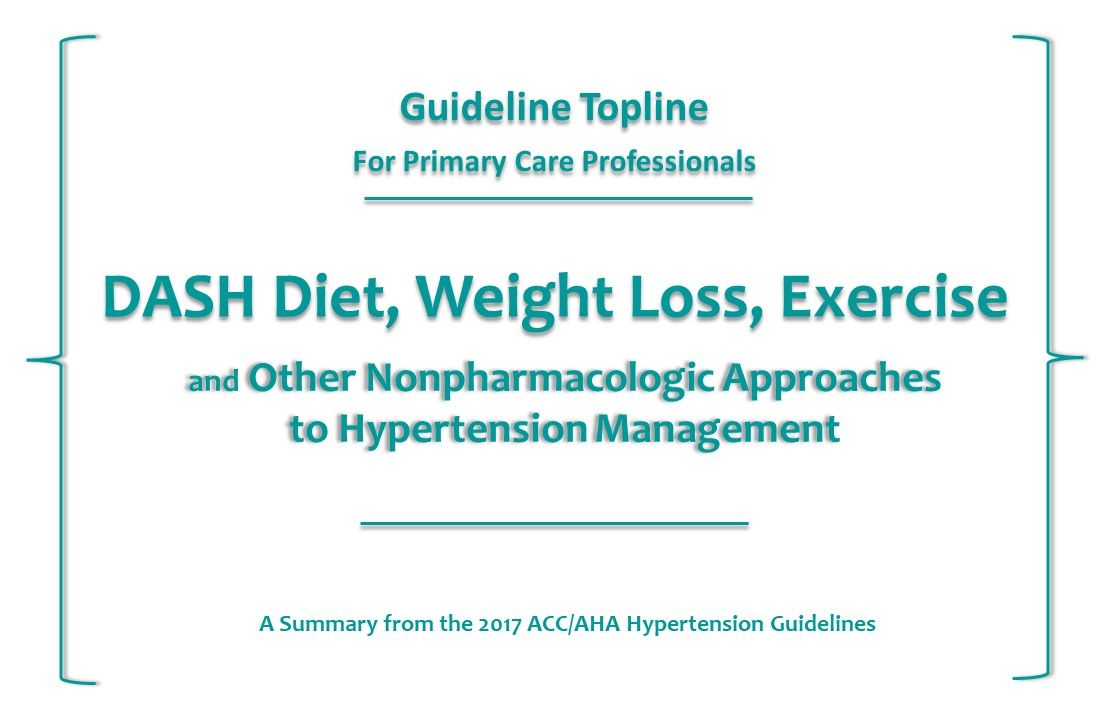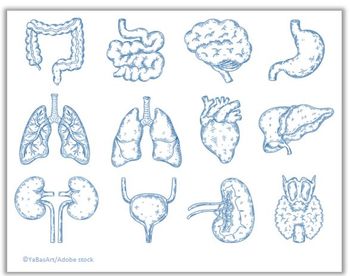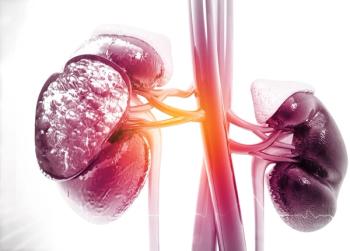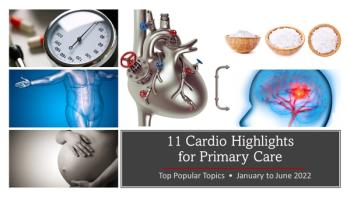
These 8 drivers of BP control reflect study of high-performing health systems and the strategies that have led to successful large scale hypertension management.

DASH Diet, Weight Loss, Exercise and Other Nondrug Strategies to Manage Hypertension

High HDL-C Increases CV Risk in Men with Hypertension, Study Finds

These 8 drivers of BP control reflect study of high-performing health systems and the strategies that have led to successful large scale hypertension management.

The recommendations guide initiation of statin therapy in persons aged ≥40 years without a history of CVD and no current signs/symptoms of CVD.

Blood pressure reduction of approximately 11 mm Hg was seen at 6 months regardless of device used, suggesting patients can keep SMBP simple.

Meta-analysis authors say the significant preventive effects of replacing use of salt with salt substitutes have important worldwide public health implications.

Analysis of 224 000 type 2 diabetes patients over 2 decades suggests the need for "revised care pathways" that better reflect the myriad causes of persistent morbidity.

Screening for atrial fibrillation with 6 wrist-worn wearable devices proved more cost effective than no screening and had greater relative benefit than using traditional modalities.

Use of wearable activity trackers increased daily time spent walking by 40 minutes and was linked to a 2-lb weight loss across age groups and populations.

Earlier age at hypertension onset could lead to greater cumulative exposure to elevated BP, exposure known to increase risk of CVD and that could lead to disparities in outcomes.

A diagnosis of NAFLD was associated with a 50% greater risk of new-onset heart failure in a meta-analysis comprised of more than 11 million individuals.

Antiplatelet medication was associated with a 63% increase in heat-related MI risk and ß-blockers with a 65% increase. People taking both drugs had a 75% higher risk.

The patient is a man in his mid-60s seen in the ED for dyspnea and diaphoresis which began an hour ago and came on suddenly. He has no chest pain. Can you Dx?

The USPSTF guidance supports shared decision making with patients without CVD risk factors who may benefit from behavioral counseling on diet and physical activity.

The GLP-1 RA given once weekly to T2D patients with hyperglycemia not controlled by diet and exercise lowered HbA1c to ≤6.5% in approximately half the study population.

Type 1 diabetes diagnoses increased by 81% during the 4-week acute phase of COVID-19 in UK patients and CVD diagnoses rose 6-fold, according to a large population-based study.

Early rhythm control reduced CV complications regardless of AF pattern but for patients with a first AF diagnosis, risks for hospitalization and ACS were higher after early rhythm therapy.

Patients with HFpEF who significantly restrict salt consumption have increased risk for cardiovascular and HF events and HF hospitalization, according to new research.

Social determinants of health, including education and income level and race/ethnicity, are drivers of declining cardiometabolic health in the US, says investigator Meghan O'Hearn.

A new study compared the differential effects of agents used to treat hypertension on the risk for dementia in patients with hypertension and mild cognitive impairment.

Americans sitting on the cusp of cardiometabolic disease, ie, with prediabetes, prehypertension, overweight but not obesity, need intervention, now.

Chronic kidney disease is underdiagnosed and undertreated across major Western countries, according to findings of the new CaReMe CKD study.

The cloud-based machine learning algorithm allows the stethoscope to identify and differentiate between innocent and structural murmurs that may signal valve disease.

These 11 studies of cardiovascular and metabolic disease prevention, assessment, and treatment were top trending topics on Patient Care in the first half of 2022.

US prevalence of optimal cardiometabolic health has declined as poor levels have risen significantly over 2 decades. Investigator Meghan O'Hearn, MS, details the research.

Adding salt regularly to food after cooking/preparation may increase risk of premature death by up to 28% and reduce life expectancy by an average of 2 years.

Called SMART WARS, a new study assessed diagnostic utility of the 2 wearable devices in older adults and considered combined device/clinician interpretation of ECG readings.